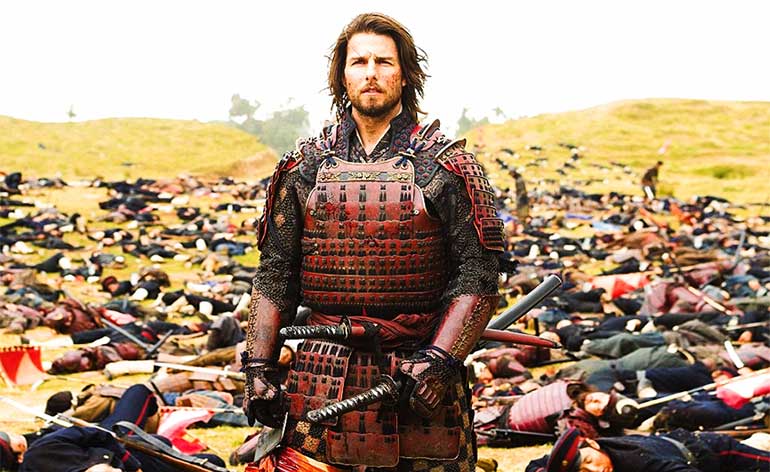Story Problems: The White Savior
I have a confession to make. I have always been attracted to a certain kind of story. A story that involves, first and foremost, a sense of wonder. A place – usually wild, but at very least a break from my everyday world – that is hidden or secret or undiscovered, at least by me. It contains a people I’ve never met and a culture that makes me look at my own in a new light – that causes me to question all my assumptions yet also smile and shake my head at all our strengths and weaknesses and foibles and say, “Yep, that’s humanity, all right.”
The problem lies in the shape these stories can take is you’re not careful.
If it’s done right, you have classics like The Left Hand of Darkness. Done wrong, and you have problematic movies like The Last Samurai and Avatar.
The Hollywood formula is simple: The main character is white. He (it’s almost always a he) enters this new world. He is rejected and belittled for half a millisecond, but then earns the new people’s respect and trust, quickly mastering the hunting/swordplay/magic skill that has taken them a lifetime to acquire. He usually has time to fall in love with a hot, exotic native or make a magical best friend or mentor. Then some threat looms, and he swings into action, rallying his new people (he, the general, they the troops) and defeats the enemy. He survives. Many of the others do not.
Even as a child, aspects of this narrative bothered me. I remember being 13 and reading Dune (the novel still has a special place in my heart, despite its problems, best summarized here and here.) As I tore through its pages and sequels, I recall being so excited to see a story that questioned the trope of the outsider “Chose One.” Not only questioned it, in fact, but held it up as a dangerous form of propaganda that would lead to millions of deaths.
Fast forward a couple decades. When I set off to write my first novel, all these thoughts were running around in my head. I wanted to keep the good parts of these stories (epic adventure, tentative friendships and the misunderstandings that can occur when navigating unfamiliar cultures) and throw out the bad. I didn’t just want to avoid the White Savior trope, I wanted to turn it on its head.
But a funny thing happened on the way to writing my ending. Something sinister slinked in the shadows.
Yes, I had avoided having my outsider character (a woman) jump on her figurative horse and cry “Follow me!” into battle. In fact, my main “outsider” character was the broken one that needed saving. But this created a new problem.
Through my choice, it became the de facto job of my “other” characters to help save her. They weren’t magical noble savages, nothing so awful as that. They had their own desires and problems and dreams. But they were still in service to her, at least in part. I had made the assumption that some of them would want to help her. And, most of all, I had assumed that she was capable of learning from them, that she would make the right choice.
Because, you know, that’s what history has taught us. That the dominate culture usually backs off and says, “You’re right. I shouldn’t take your land. Never mind.” Maybe that is why the savior narrative is so seductive to many white people. Because we want to believe that we are special and would have made the right choice in historical/fictional narratives, that way we don’t have to think too deeply about the choices we are making now.
Hmmm, so, yeah. I rewrote my ending … and it was better. And I don’t just mean that it would get a pass from the PC police. It was narratively stronger. Most important, it reflects what I believe to be true.
With the new ending in place, I then had to work backward. In my first draft, I had two main POV characters – my “outsider” and my “other” – but of the two, the dominate point of view was definitely the outsider. When I originally made this decision, I told myself it was because readers might have trouble identifying with the other culture, and I needed to ease them into it, or I’d lose them.
Perhaps this was (is?) true. But it’s also true that it was simply easier for me to write the outsider character because her experiences were closer to my own. What I didn’t understand, this being my first stab at writing a book, was the corner this backed me into.
By definition, your main character is the one with the most at stake. This means their needs seem most important. They also tend to take the most active role. Fail to have them do so, and they come off as boring or wishy washy. This is the plot-driven reason why many white savior characters are saviors. Because if they weren’t, why would they be in the story at all?
Ahhh, and there you have it. The real question. And my answer: My “other” main character needed to be my dominant protagonist.
So, I wrote a new beginning and more middle to go with my new end.
The feedback I’ve been getting is positive, although I’m still not sure I’ve gotten it exactly right. But with each pass I give the manuscript, I tweak and dig and try to improve. I hope to get there eventually.
I hope we all do.


